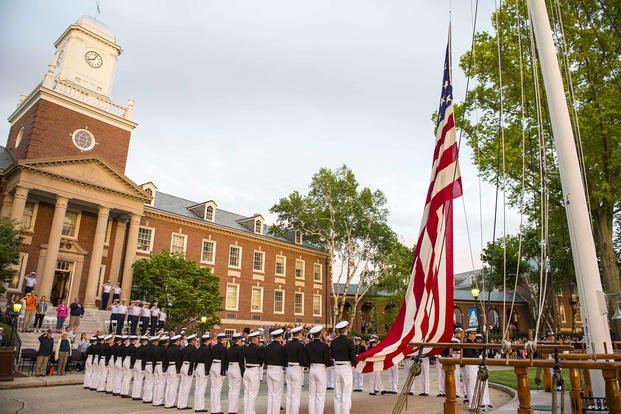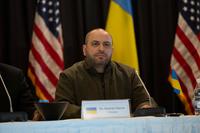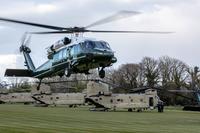Senators say the U.S. Coast Guard is hindering their investigation into the cover-up of sexual assaults at its service academy by refusing to release unredacted documents and stripping vital information from correspondence between senior service officials.
Leaders of the Senate Homeland Security Permanent Subcommittee on Investigations wrote a letter last week demanding greater transparency from Coast Guard Commandant Adm. Linda Fagan after receiving documents on the service's decision not to publicly disclose its own investigation into the academy sexual assaults, known as Operation Fouled Anchor.
The documents, from 2018, contain a discussion into the "pros and cons" of revealing the results of the investigation into 102 sexual assaults across nearly two decades at the Coast Guard Academy. The papers raise "new questions about the reasons" the Coast Guard decided against briefing Congress when the review was complete, according to the senators' letter.
Read Next: 'Combat Con Artists' of World War II Who Hoodwinked Nazis Get Long Overdue Top Honor from Congress
The letter was penned by Sen. Richard Blumenthal, D-Conn., the subcommittee chairman, and Sen. Ron Johnson of Wisconsin, the panel's ranking Republican.
"These documents are troubling," Blumenthal and Johnson wrote. "According to the enclosed documents, the Coast Guard was concerned that, should Operation Fouled Anchor be made public, it would 'risk the initiation of comprehensive investigations, hearings and media interest.'"
The academy's mishandling and burial of sexual assault reporting came to light in June as the result of extensive investigative reporting by CNN, which found that the service had conducted a multiyear probe into the issue and never revealed the results.
According to Blumenthal, 102 cases of rape or sexual assault at the academy were investigated from 1988 through 2006, with 43 alleged perpetrators and 63 victims, although the documents released to the subcommittee cite 51 cases.
The records provided to the subcommittee reveal the deliberative process that led Coast Guard officials not to disclose the results of the investigation, including a handwritten list of the pros and cons penned by then-Vice Commandant Adm. Charles Ray.
On the "pro side," Ray wrote that going public would "rip bandaid off," be "proactive vs. reactive" and result in "cultural guilt purged."
The cons, according to Ray, included "victims not coming forward" or being revictimized, to avoid "investigations without end," and preserve long-standing service policies not to communicate the results of criminal or administrative investigations publicly and only to respond when asked.
"Problem is one of the past," Ray wrote.
Citing senior leaders who are not named in the documents, Ray wrote that one involved in the discussions said that not disclosing would "avoid catastrophic [divisions at] Coast Guard Academy ongoing already."
At the time of the discussion, Adm. Karl Schultz had been in the post of Coast Guard commandant for four months. Ray, who retired from the Coast Guard in 2021, resigned last year from a position at the Loy Institute for Leadership at the Coast Guard Academy as a result of the scandal.
According to the documents, Coast Guard leadership had additional concerns about the disclosure of the investigation, including "extensive media coverage," possible investigations into all Coast Guard leaders "past and present," and the fact that "the rates of sexual assault reporting have not appreciably changed [at the academy], calling into question impact of Coast Guard actions taken over the past decade to change [Coast Guard Academy] climate/etc."
It was decided only to respond to any questions that came in from Congress or the media. That decision was based on concerns over victims' privacy, the fact that many allegations never were substantiated or prosecuted, and that disclosing a group of similar but not linked cases was unprecedented, according to the documents.
"If [we respond to queries] only, the service's exposure to risk would most likely arise if active-duty members subject to action as a result of investigation bring the matter to congressional attention," the decision summary states.
Following congressional scrutiny that followed CNN's reporting on Operation Fouled Anchor, Fagan ordered a top-down review of the Coast Guard's policies, culture and practices regarding sexual assault and harassment.
The review found that the service was failing its members by not providing a safe workplace, eroding trust in leaders and the system, and causing psychological harm to victims.
As a result of that review, the service has established a victims' advocate position at Coast Guard Headquarters, hired additional staff to handle Freedom of Information Act requests from victims of sexual assault, and instituted a "safe to report" policy that requires commanders to disregard "minor" misconduct -- including underage drinking or fraternizing -- by victims or witnesses in sexual assault cases to encourage reporting of such crimes.
In a news release earlier this month, service officials also said they are cooperating with a Department of Homeland Security Office of Inspector General review of the failures and have turned over 36,000 documents in response to more than 300 requests for information, including from the inspector general and Congress.
In their letter, Blumenthal and Johnson asked for a list of those who participated in the creation and approval of the documents on the decision process, as well as all who were present for the discussions.
They also requested missing email attachments that may include an earlier draft of the Operation Fouled Anchor report.













